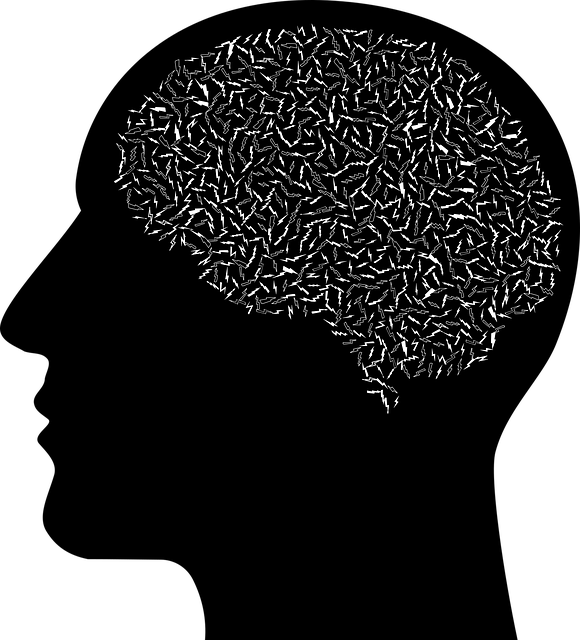Depression, affecting millions globally, requires early detection through subtle signs. Englewood Acceptance and Commitment Therapy (ACT) offers a unique approach by teaching acceptance of emotions, mindfulness, and values-driven actions to prevent and manage depression. This holistic method combines lifestyle changes like exercise, balanced diet, and stress management with therapeutic techniques, supported by community resources, for improved mental wellness and resilience.
Depression is a prevalent yet treatable condition. This article explores comprehensive strategies to prevent and manage it, offering valuable insights into recognizing early signs and fostering resilience. We delve into the benefits of Englewood Acceptance and Commitment Therapy (ACT), a revolutionary approach to mental well-being. Additionally, we discuss lifestyle adjustments, coping mechanisms, and the importance of seeking professional support for those navigating depression. By implementing these strategies, individuals can enhance their mental health and cultivate a brighter, more resilient mindset.
- Understanding Depression: Recognizing the Red Flags
- The Role of Englewood Acceptance and Commitment Therapy (ACT) in Prevention
- Lifestyle Changes for a Brighter Mindset
- Building Resilience: Coping Strategies for Everyday Life
- Seeking Support: Professional Help and Community Resources
Understanding Depression: Recognizing the Red Flags

Depression is a complex mental health condition that affects millions worldwide, but it’s essential to recognize its subtle signs and symptoms early on. The key to prevention often lies in understanding the red flags that may indicate someone is at risk or already struggling with depression. These can include persistent feelings of sadness, hopelessness, or emptiness; changes in appetite and sleep patterns; difficulty concentrating and making decisions; increased fatigue or lack of energy; feelings of worthlessness or guilt; and recurrent thoughts of death or suicide.
Englewood Acceptance and Commitment Therapy (ACT) offers a valuable approach to mental wellness by helping individuals accept these challenging emotions and commit to actions that align with personal values, thereby fostering resilience against depression. By raising Mental Health Awareness and providing tools for Anxiety Relief, ACT empowers folks to navigate life’s stressors more effectively. Recognizing these red flags is the first step towards ensuring better Mental Wellness and seeking appropriate support when needed.
The Role of Englewood Acceptance and Commitment Therapy (ACT) in Prevention

Englewood Acceptance and Commitment Therapy (ACT) offers a unique approach to depression prevention by focusing on cultivating mindfulness, acceptance, and values-driven actions. This therapy challenges the traditional battle against negative thoughts and feelings, instead teaching individuals to observe their emotions without judgment. By embracing this mindset shift, ACT empowers people to develop resilience and a deeper understanding of their emotional responses. The core principles of Mind Over Matter are at play here, encouraging clients to view their thoughts as mental events rather than facts, fostering a more flexible and adaptive relationship with their minds.
One of the key benefits of ACT is its ability to enhance empathy building strategies within therapeutic relationships. Therapists trained in this method create a supportive environment, encouraging clients to accept their experiences while still taking action consistent with their personal values. This process can significantly reduce symptoms of depression and anxiety relief, promoting overall well-being. Through engaging in meaningful activities and setting goals aligned with one’s values, individuals are better equipped to navigate life’s challenges, ensuring long-lasting prevention strategies rather than just managing symptoms.
Lifestyle Changes for a Brighter Mindset

Adopting a healthier lifestyle can significantly contribute to preventing and managing depression. Simple yet effective changes like regular exercise, a balanced diet, and adequate sleep can boost your mood and enhance mental wellness. The Englewood Acceptance and Commitment Therapy (ACT) approach emphasizes the importance of these daily habits in cultivating emotional resilience. Engaging in physical activities releases endorphins, known as “feel-good” hormones, which can reduce stress and improve overall well-being. A diet rich in nutrients supports brain health, ensuring your body has the tools to maintain optimal mental function. Additionally, prioritizing quality sleep allows your mind and body to rest and recharge, promoting better emotional regulation—a key aspect covered in the Mental Wellness Podcast Series Production, where experts delve into various therapeutic techniques.
Furthermore, mindfulness practices and stress management techniques are integral parts of this lifestyle shift. Healthcare Provider Cultural Competency Training encourages professionals to guide their patients towards these practices, which can foster a sense of calm and control over one’s thoughts. By integrating emotional regulation strategies into daily routines, individuals can better navigate life’s challenges, reducing the risk of depressive episodes. This holistic approach, combining lifestyle changes with evidence-based therapies, paves the way for a brighter and more resilient mindset.
Building Resilience: Coping Strategies for Everyday Life

Building resilience is a crucial component of depression prevention and can significantly enhance one’s ability to cope with life’s challenges. Englewood Acceptance and Commitment Therapy (ACT) offers valuable insights into this process. By embracing ACT principles, individuals learn to accept their emotions rather than fighting them, fostering a sense of self-compassion. This shift in perspective encourages a more flexible mindset, enabling people to adapt to stressful situations without getting overwhelmed.
Coping skills development is another essential aspect. Engaging in regular mental wellness journaling exercises can serve as an effective coping mechanism. It provides a safe space for individuals to express their thoughts and emotions, track patterns, and identify triggers. Public awareness campaigns play a pivotal role in promoting such practices by offering guidance on healthy coping strategies, encouraging open conversations about mental health, and destigmatizing the act of seeking support.
Seeking Support: Professional Help and Community Resources

Depression can be a daunting challenge, but seeking support is a vital step toward recovery. Professional help plays a crucial role in understanding and managing depression effectively. Therapists, such as those specializing in Englewood Acceptance and Commitment Therapy (ACT), offer evidence-based approaches to combat negative thought patterns and behaviors. ACT focuses on building empathy within the therapeutic relationship, fostering a sense of self-acceptance, and encouraging individuals to engage in meaningful actions despite difficult emotions.
Community resources also provide valuable support networks. Local support groups, mental health hotlines, and community counseling centers offer accessible options for those seeking help. These platforms facilitate open discussions, share empathy-building strategies, and promote stress management techniques, all of which can aid in burnout prevention. By combining professional guidance with community support, individuals can navigate their depression journey with increased resilience and a better chance at long-term well-being.
Preventing depression is a multifaceted approach that involves understanding its signs, adopting therapeutic techniques like Englewood Acceptance and Commitment Therapy (ACT), making lifestyle changes, building resilience, and seeking professional support. By integrating these strategies into daily life, individuals can foster better mental health and enhance their overall well-being. Remember, taking proactive steps towards mental wellness is a powerful tool in navigating life’s challenges.














